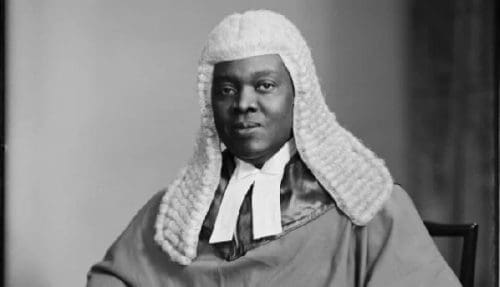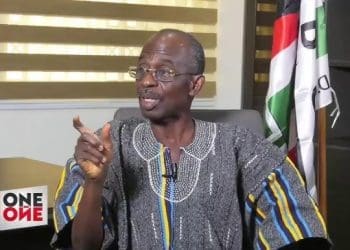In 1963, Ghana’s political and judicial landscape was rocked by an unprecedented move: the dismissal of Chief Justice Sir Kobina Arku Korsah by President Kwame Nkrumah.
The removal of Sir Arku Korsah, the country’s first indigenous Chief Justice, sparked widespread public reaction, with thousands pouring onto the streets in apparent celebration.
Trial that sparked tensions
The dismissal came in the aftermath of the Kulungugu bombing of August 1962, when a grenade was hurled at President Nkrumah during a visit to the Northern Territories.
Several individuals were arrested and tried for conspiracy and attempted assassination. The case, presided over by Chief Justice Korsah, ended with the acquittal of key accused persons.
Nkrumah, who had survived the attack, was deeply dissatisfied with the outcome. He regarded the verdict as not only a failure of justice but also a direct affront to his authority. The political climate at the time was already charged, as Nkrumah’s government was tightening its grip on power under the Convention People’s Party (CPP).
Dismissal of the Chief Justice
Soon after the verdict, Nkrumah moved swiftly. In December 1963, Chief Justice Korsah was summarily dismissed from office. The decision shocked the judiciary and political observers alike, as it marked a clear departure from judicial independence.
Street reactions: A divided nation
Interestingly, reports from the time note that many ordinary Ghanaians celebrated the move. Crowds gathered in Accra and other cities, praising Nkrumah’s decisive action.
For his supporters, the dismissal was seen as justice for the attempt on the President’s life and a bold stand against what they perceived as judicial obstruction.
However, behind the celebrations, others worried about the precedent being set. Critics—both at home and abroad—argued that the sacking of Korsah undermined judicial autonomy and placed the courts under the direct influence of the executive.
Legacy of the Korsah dismissal
Sir Arku Korsah’s removal remains a landmark in Ghana’s political history. It exposed the fragile balance between the executive and the judiciary in the early years of independence. For Nkrumah, it consolidated his power but also deepened criticisms of his authoritarian style.
Today, the episode is remembered as a cautionary tale about the dangers of executive overreach and the vulnerability of judicial independence in emerging democracies.
Watch the video:
Ghanaians celebrated when Nkrumah sacked Chief Justice Sir Arku Korsah in 1963@DrJJZaato @StanDogbe @SammyGyamfi_ pic.twitter.com/S1jFfZq0My
— 𝓚𝓸𝓳𝓸 𝓝𝓮𝔀𝓼𝓖𝓗 (@_iamkojo) September 1, 2025












